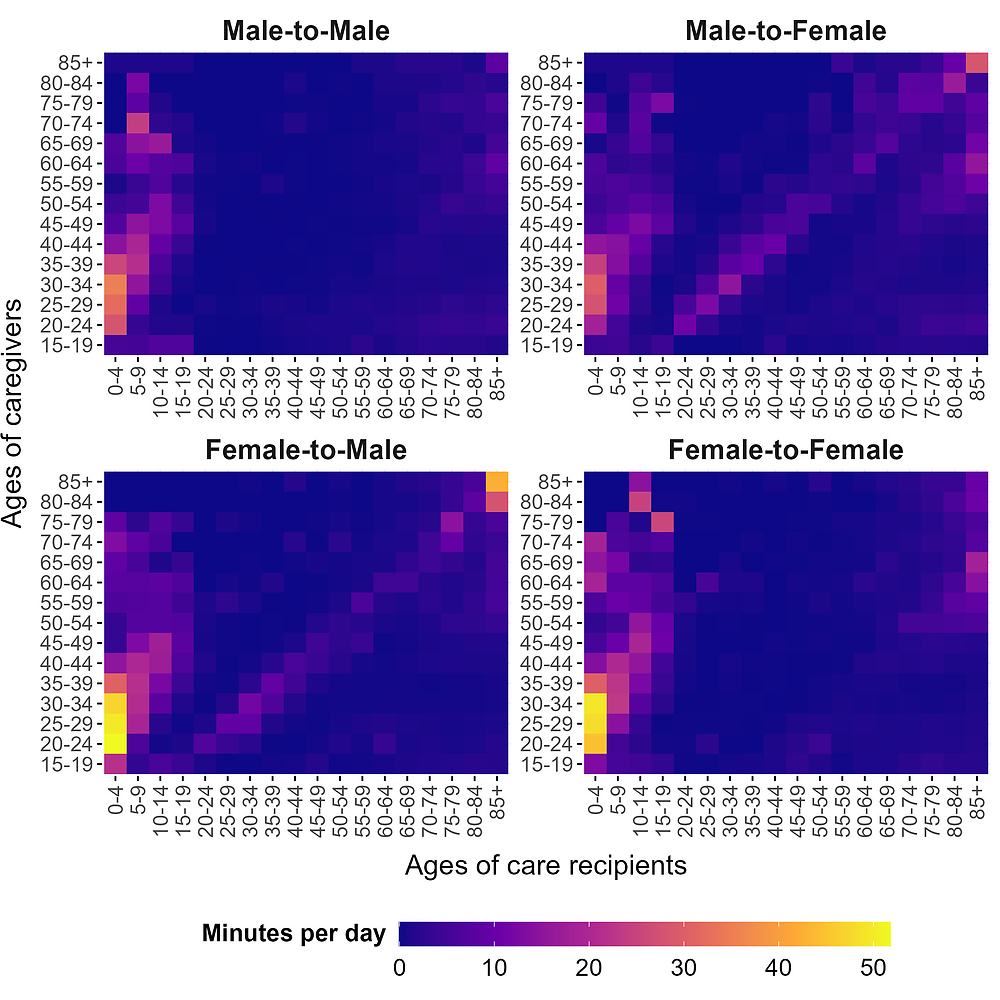Laboratory
Population Dynamics and Sustainable Well-Being
At a Glance
Projects
Publications
Team
Project
Intergenerational Transfers of Informal Care Time Across Contexts and Sociodemographic Characteristics
Daniela Veronica Negraia, Emilio Zagheni; in Collaboration with Denys Dukhovnov (University of California, Berkeley, USA)
Detailed Description
This project documents the direction and volume of nonmonetary resource flows between generations, genders, and population subgroups. Informal care time is a prevalent form of nonmarket transactions that impacts macroeconomic development, the financial potential of families and households, and individual well-being.
Transfers of informal care time are an understudied component of national and subnational resource flows, with repercussions for the functioning of economic support systems. These transfers are mostly associated with the unpaid time spent by caregivers with their household members to provide physical help or other unpaid assistance to coresiding family members. Yet, some nonmonetary care transfers extend to more distant or atypical relationship transactions or they are simultaneous/multidirectional in nature. The first aim of this project is to factor in all kinds of informal care and produce accurate population-level estimates and projections of dependency and potential support. The second aim is to evaluate the social and individual impact of the production and consumption of nonmonetary resources.
In one study, we documented substantial differences among unpaid caregivers by gender (women versus men), both within and outside caregivers’ households: On average, women contributed substantially more time than men with informal care activities within a household and beyond. We expect that this gender gap will shrink in the future in view of changing societal norms on women’s involvement in the labor force and men’s involvement in child care and household production.
In another study, we tested whether the gap in time spent in child care between mothers and fathers narrows or closes during weekends, when fathers – who on average work more hours for pay than mothers – would have substantially more time available to spend with their children than during the work week. To test this question, we used time-diary data from the American Time Use Survey (2003–2018). Preliminary results have shown that the gender gap in time spent with children persisted during weekends: Fathers spent less time with their children during weekends than mothers, and this applies across the eight key activities we tested.
Our more recent studies explored the interdependence of the formal and informal care-support mechanisms and the impact of the intensity and prevalence of transfers on caregivers’ well-being. Notably, child care was regarded by caregivers as a predominantly positive experience even though it was physically tiring. Adult care, however, was seen largely as an unavoidable necessity or obligation in later life, which induced higher levels of negative emotions, such as pain and stress, and placed additional psychological burden on family caregivers.
Average Daily Care Transfer Patterns in the U.S.

Average daily care transfer matrices by age and sex of caregivers and care recipients in the caregiver-only subset of the ATUS 2011-2013 sample. © Dukhovnov et al. (2022)
Economics, Employment, Retirement, Intergenerational Relationships
Publications
Dukhovnov, D.; Ryan, J.; Zagheni, E.:
Population Research and Policy Review 41:6, 2419–2446. (2022)

Negraia, D. V.; Yavorsky, J. E.; Dukhovnov, D.:
Journal of Marriage and Family 83:3, 820–844. (2021)

Dukhovnov, D.; Ryan, J.; Zagheni, E.:
MPIDR Working Paper WP-2020-022. (2020)

Dukhovnov, D.; Zagheni, E.:
Vienna Yearbook of Population Research 17, 163–197. (2019)
